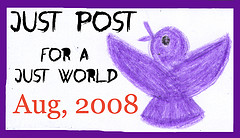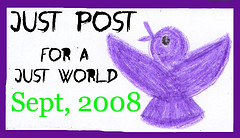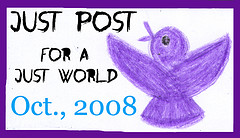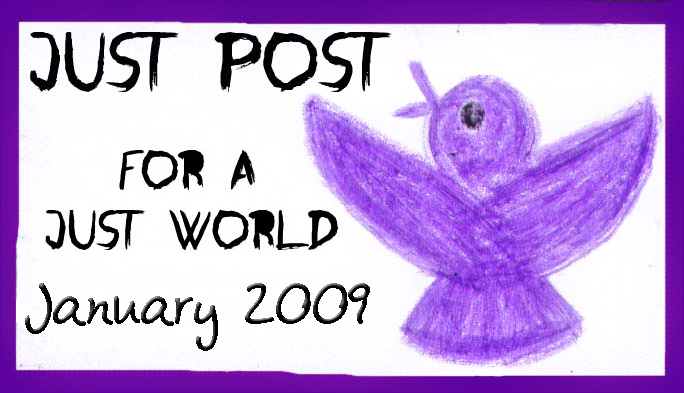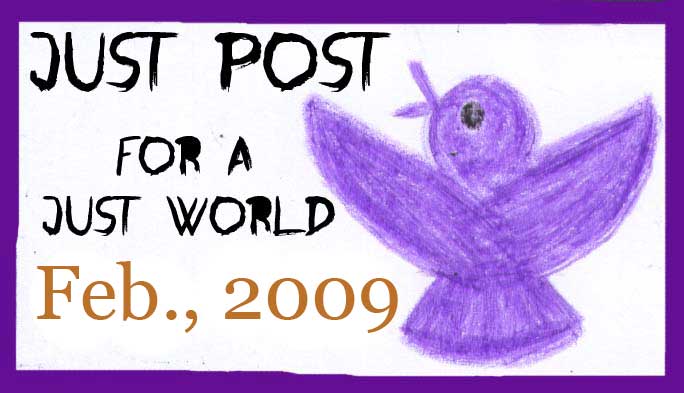Of Two Minds
In class on Tuesday, I showed students part of a documentary film called SASA! about the interplay of violence and HIV in women’s lives in Uganda and Tanzania. Sasa means “now” in Kiswahili (the Bantu language most of us know as Swahili) and was chosen as the name of the film to emphasize the need for knowledge building about how violence, disease, and cultural power dynamics impact women. The organization that worked to create the film, Raising Voices, is a respected NGO working in non-violence, specifically regarding women and children. The film itself was made by The People’s Picture Company in partnership with Raising Voices.
The film follows the stories of women who have been personally impacted by violence and HIV. Their lives illustrate the common barriers women face to health and personhood. The issues are not particularly unique to this one place nor are they revolutionary in terms of what we already know about women, poverty, and heath — but they are still tremendously tragic. Bride prices, cultural expectations, personal beliefs of a woman as economically dependent, social acceptance of plural marriage… when these are combined with violence and poverty, disease is not far behind.
(Quicktime 30 minute film here.)Â SASA (30 minutes)
I was surprised at how much of the material discussed in the film came as a surprise to students, or at least, that they showed such great pain at the realities in the film. I had been taking it for granted that these were things everyone knew about women in poverty: that their lives are characterized by great abuses and limitations that are unthinkable to women raised in the West. In fact, I usually am frustrated by the over-characterization of ALL women, particularly AFRICAN WOMEN, of living these oppressed lives. Films like this often frustrate me because I feel it gives us wealthy Westerners reason to pity women who aren’t like us, infantilizing their lives and experiences in patronizing, imperialist ways. I’m more comfortable talking about strengths, resistance, community building, and learning. These sort of films and stories can paints the picture that women, even women within these terrible circumstances, are completely passive — controlled by the whims of their fathers and husbands — providing no self-directed action toward any part of their lives. In depth research into these issues shows us that women who we view as the most “oppressed” by our definitions of oppression still act in resistance in ways that we might not see or appreciate. Those are the sorts of conversations I like to have. Let’s talk about what works and build on it.
But this class is an overview class. Many students within it have never been outside of the United States, least of all to a non-OECD country. First, then, they learn of the realities of poverty. Thus, the film. Thus, the discussion.
It was a good class, a fine, interesting discussion. But it left me a bit raw. I’m not sure how to teach an introduction to the realities of global poverty without painting the “woe is me” picture. Is there a way to tell a tragic, terrible story, showing relevant barriers and challenges without painting a picture of a passive victim and active perpetrator? I tried my best to break up that binary dynamic, about how the limits on one equally limits and defines the other – if you define one as black, then by definition the other one is completely white, leaving no room for gray. I tried to walk that line of breaking thought out of submission versus aggressive, masculine versus feminine, victim versus perpetrator… but who knows how far that was absorbed.
Maybe it’s just that easy to believe that men are assholes? Or, maybe it’s easier to believe that women are passive, submissive, and silent.
Donors do like a good victim story, after all.
Still, I like this film. I think it does a good job of showing the problems and gives focus to how the community is coming together in their own terms to deal with them. It does an excellent job of showing the ridiculousness of the “ABC” approach and how utterly useless it is in women’s lives. (The ABC approach is the “Abstinence, Be faithful, use Condoms” approach to HIV prevention. You might as well tell women that drinking Kool-Aid will prevent HIV. Actually, the chemicals in Kool-Aid are probably more effective in limiting HIV infection than ABC. But I digress.)
It ends in a positive light, showing the impact of peer counseling and community work. And of course it does! Because ultimately the film needs to show interest and build compassion. Ultimately, this is an agency that relies on donations. It is a wonderful organization doing work I respect and admire. The sort of place I’d love to work, actually. When you think about it, they tread a fine line in this film: showing just enough compelling story for donors and then showing the proactive ways a good organization can be capable of improving even the most difficult of lives.
So why do we focus so much on all that terrible, victimizing stuff? What is it that is so compelling? Is it the same thing that makes us listen harder when the neighbors start to fight, or slow down to look at the scene of a traffic accident? Do the realities of living in poverty provide good voyeur material?
I can’t help but feel a little frustrated. Maybe it’s that I’m jaded and tired of the essentializing of ‘women in the developing world’. Maybe I’m tired of seeing the same solutions for problems that seem never-ending.
In the end, I felt that putting it here might be a way to work it out. Maybe I’m wrong and there are very surprising things to be found in this film. Maybe I’m alone in my frustrations. And maybe there is more we can do?
